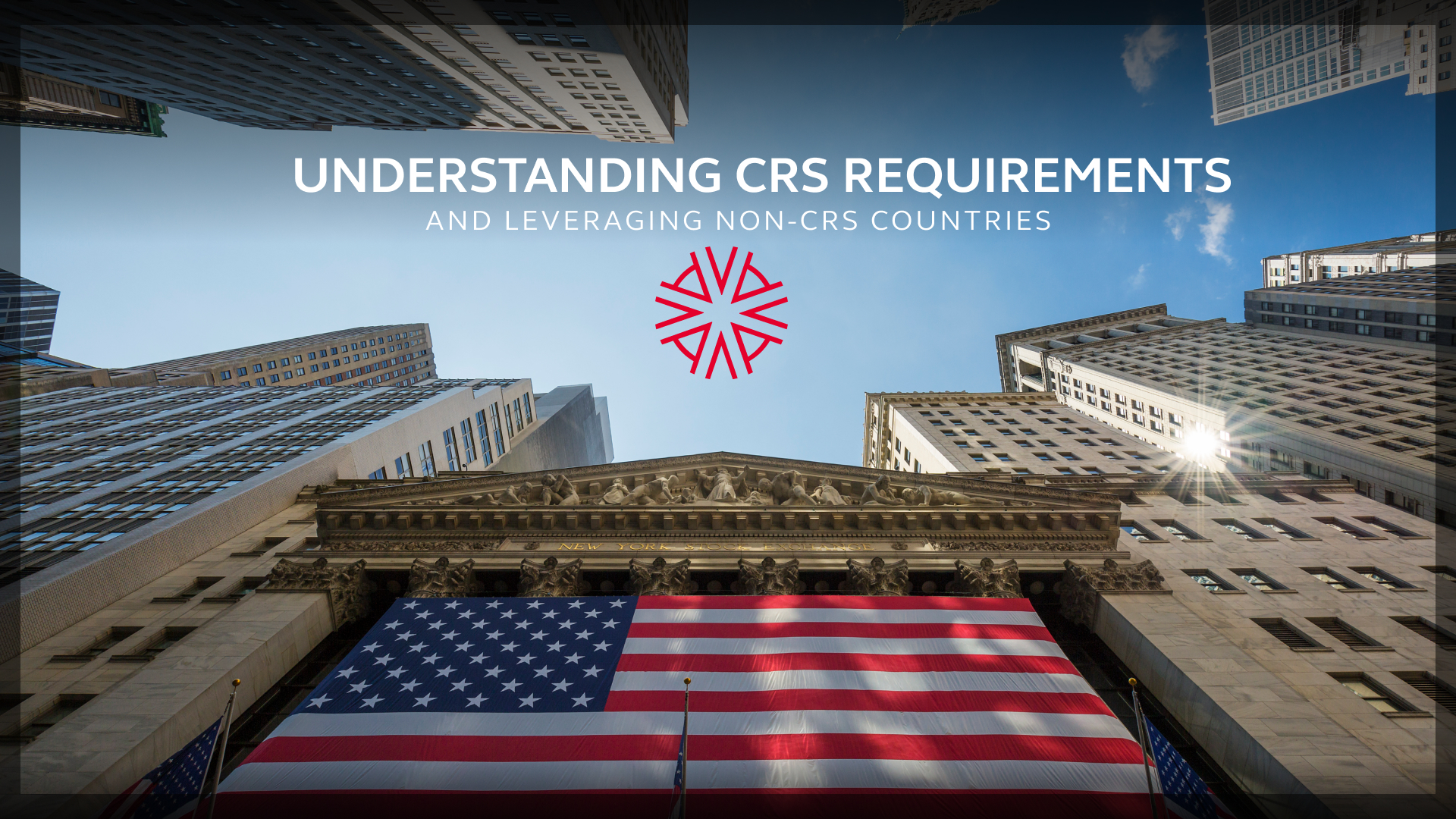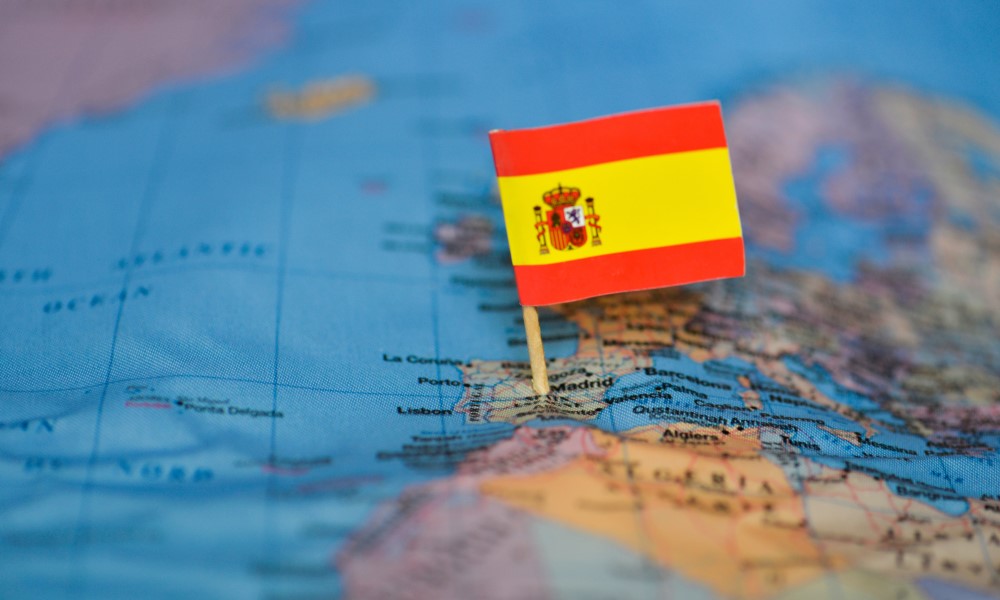Overly broad risk assessments and privacy intrusive reporting have become central themes of the modern banking system. Thus, banking in non-CRS countries, specifically as legal residents or citizens, can provide unparalleled privacy and security for global investors.
On one hand, enhanced financial scrutiny and reporting are vital tools for combating money laundering and other criminal activities.
On the other hand, the arbitrary and capricious application by banks of blanket and overly broad policies make financial activity more restrictive and invade the privacy of legitimate High-Net-Worth Individuals (HNWIs).
The Common Reporting Standard (CRS) is considered one such obstacle and burden to many legitimate HNWIs.
As with governments, the evidence demonstrates that the greater power the banks get, the more intrusive they become.
For many, the solution is bank diversification through investment migration to leverage non-CRS countries. This can enhance and elevate the power of the investor and minimize the reach of banks and governments.
Non-CRS countries vs CRS countries
Every country has financial regulations of some nature; the trick is to figure out which set of legal frameworks functions in your interests.
Many HNW entrepreneurs, investors, and families find themselves stuck in a system that limits their legal activity due to ill-conceived restrictions.
However, in many cases, remaining in that situation is by choice.
To help alleviate some—or all—of this burden, HNW entrepreneurs, investors, and families pursue global mobility assets such as a second citizenship and Plan B passport or an alternative residency to use for banking, business, and other personal affairs.
Using those alternative legal identities, HNW entrepreneurs, investors, and families can then access banking systems outside their native countries – and, in some cases, non-CRS countries.
Simply stated, a non-CRS country is one whose banking system is not subject to the CRS requirements. Whereas banks in a CRS country are.
The CRS is a global framework that banks in CRS countries implement to facilitate the exchange of financial account information about their clients with other participating jurisdictions.
What are CRS requirements for banks?
The Common Reporting Standard is an international agreement developed by the Organisation for Economic Co-operation and Development (OECD) to promote global tax transparency.
Financial institutions, such as banks, must report information about their clients’ financial accounts to local tax authorities, who then exchange this information with the tax authorities of other participating countries.
The intended goal is to prevent individuals from hiding assets and income to evade taxes or facilitate the movement of proceeds from illegal activities.
In accordance with the CRS framework, banks and other financial institutions are obligated to collect and report specific information about their clients and their banking activities.
Required CRS information includes highly sensitive and confidential information, such as a client’s:
- Name
- Address
- Tax identification number
- Account balances
- Income earned
- Movement of funds into and out of accounts
Banks must conduct due diligence procedures to identify reportable accounts and the tax residency of their account holders.
The CRS due diligence process involves:
- Identifying reportable accounts: Banks must review their clients to determine which accounts are held by individuals or entities resident in other CRS-participating jurisdictions
- Collecting relevant information: Banks are required to obtain self-certifications from account holders regarding their tax residency and gather necessary documentation to support the claims
- Reporting to local tax authorities: Banks must annually report the collected information to their local tax authorities, who then exchange it with other tax authorities
Non-CRS countries
While over 100 countries have committed to implementing the CRS, some jurisdictions have not yet signed up or have delayed its implementation.
These non-CRS countries can be attractive tools for HNWIs seeking to enhance their financial privacy or minimize tax obligations.
However, it is essential to note that the list of non-CRS countries is subject to change as more jurisdictions adopt the standard.
As of 2021, some notable non-CRS countries include:
- United States: A surprise to most people, but the US is not a CRS member state because it created a far more intrusive reporting system called the Foreign Account Tax Compliance Act (FATCA)
- Philippines: has committed to CRS but has not yet implemented
- Thailand
- Vietnam
- Egypt
Other countries that do not implement the CRS (as of the date of this article) are:
- Armenia
- Bosnia and Herzegovina
- Georgia
- Kazakhstan
- Kosovo
- North Macedonia
- Montenegro
- Serbia
- Ukraine
- Mongolia
- Paraguay
- Cambodia
- Myanmar
- Laos
- Sri Lanka
- Iraq
- Lebanon
- Afghanistan
- Libya
- Namibia
- Botswana
Many of the countries that do not employ the CRS system have other information-sharing agreements or domestic regulations [the US is the perfect example] that require financial institutions to report account information to tax authorities.
Implications of CRS violations and reporting
The reason HNWIs take CRS very seriously is that non-compliance can have dire effects on their wealth and livelihood.
Being reported as suspicious per the CRS requirements may result in several potentially serious consequences, such as:
- Financial penalties: HNWIs may be subject to significant fines and penalties imposed by their country of tax residency. The specific amounts vary depending on the jurisdiction and the severity of the non-compliance.
- Legal consequences: Intentional non-compliance with CRS requirements may be considered tax evasion. Depending on the laws of their country of tax residency, individuals may face legal proceedings, including prosecution and potential imprisonment.
- Reputational damage: Suspicious activity triggering CRS reporting can result in reputational damage, particularly if made public.
- Asset or account freezing or closure: Financial institutions that identify non-compliant account holders may freeze or close their accounts to mitigate the bank’s risks – also known as De-banking.
- Heightened financial scrutiny: A history of CRS violations may increase scrutiny from tax authorities and financial institutions, making future access to financial services or engaging in cross-border transactions more challenging.
- Retroactive consequences: On rare occasions, the consequences of CRS non-compliance may apply retroactively. Tax authorities may investigate an individual’s past financial activities and impose penalties for previous years of non-compliance.
Investment migration and CRS
Investment migration offers HNWIs several avenues to navigate the Common Reporting Standard (CRS) complexities. One primary benefit of investment migration is the potential to diversify tax residency.
However, it should be noted that the investment migration industry conducts its own due diligence framework, and previous CRS violations can negatively impact citizenship and residency through investment approvals.
However, should HNW entrepreneurs, investors, and families possess the insight to obtain residency or citizenship before any such wrongful CRS or de-banking event occurs, they can significantly mitigate the consequences to themselves if it were to happen at a future time.
By acquiring a second citizenship and Plan B passport or alternative residency in a country with favorable tax and banking laws, HNWIs may be able to optimize their tax situation and banking opportunities legally.
This is especially true if their new country has a lower tax rate or offers specific tax incentives for foreign investors, such as a non-dom tax program.
Some non-CRS countries offer citizenship by investment or Golden Visa programs for HNW entrepreneurs, investors, and families to leverage – Egypt, for example.
Holding residency or citizenship in a non-CRS country may allow HNWIs to maintain a higher level of financial privacy and potentially minimize their exposure to information exchange.
Enhancing global mobility is another advantage of possessing a Plan B passport or even an alternative residency.
Many programs grant HNWIs the ability to travel visa-free or receive other mobility benefits—for example, the Greece and Portugal Golden Visas offer ETIAS and EES exemption status.
Likewise, some Caribbean passports offer visa-free access that not even the US or UK passports provide – such as to China, Brazil, and Russia.
This can be particularly beneficial for HNW entrepreneurs, investors, and families who need to manage their financial affairs across multiple jurisdictions and want to avoid the potential disruption a visa denial would create.
Investment migration can also open up new financial planning opportunities for HNWIs.
By having residency or citizenship in multiple countries, HNW entrepreneurs, investors, and families may be able to structure their assets and investments more tax-efficiently, taking advantage of double taxation agreements, for example.
A Plan B passport is a legal alternative identity, so HNW entrepreneurs, investors, and families can bank, conduct business, travel, and conduct other personal/professional affairs leveraging the identity of their choice.
Many countries offering investment migration programs have stable and well-regulated financial systems, providing HNWIs with a secure environment for their assets and investments, as well as access to a broader range of financial services and products.
Opening an offshore trust in St Kitts & Nevis as a citizen, for example, is an excellent way to reduce the number of reports and personal assets while maintaining and enhancing one’s wealth – the St. Kitts & Nevis citizenship by investment program makes this possible.
In some cases, investment migration may lead to reduced CRS reporting requirements.
If an HNWI becomes a resident or citizen in a non-CRS country, such as Egypt, and no longer holds significant financial accounts in their previous country, they may have fewer reportable accounts under the CRS.
However, it is essential to understand that investment migration is not a guaranteed solution to avoid CRS reporting requirements, and HNWIs must always consider laws from the current country that may follow them around the world.
The specific tax and banking implications on an individual will depend on that investor’s unique circumstances, the countries involved, and the applicable tax laws and regulations.
Many countries that offer citizenship by investment or Golden Visa programs, such as the Caribbean Five and in Europe, are part of the CRS.
To effectively navigate the complexities of the CRS and assess the potential benefits and risks of investment migration, HNWIs should always seek professional advice from legal professionals who specialize in the intricacies of investment migration, such as Astons.
Astons’ team of seasoned experts can help develop a comprehensive strategy that aligns with the individual’s needs, demands, goals, and dreams.
Astons – The first step
The Common Reporting Standard has reshaped the global financial landscape, promoting transparency and the exchange of information among participating countries.
Banks play a crucial role in implementing CRS requirements by identifying reportable accounts, collecting relevant information, and reporting to local tax authorities.
However, legitimate HNWIs have no control over how banks interpret their activities—especially in the age of digital and global markets—and thus are vulnerable to having their lives, wealth, and reputations targeted unjustifiably.
Understanding CRS and leveraging non-CRS banking is not about hiding from the law but solely about walking within its parameters and being respected for it.
Acquiring residency or citizenship in a non-CRS country does not automatically shield one from reporting requirements—it could simply alleviate the risk of false allegations and asset freezes.
Investment migration is solely a tool and resource that HNW entrepreneurs, investors, and families capitalize on to enhance and elevate their sovereignty, freedom, and access – financially and personally.
The first step is always the most important – schedule your Free Confidential and Comprehensive Consultation with a team of experts today.












